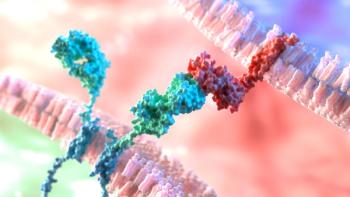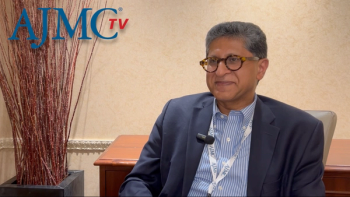
Axi-cel May Add Years, Decrease Cost vs Tisa-cel in Large B-Cell Lymphoma
A new cost-effectiveness analysis suggests quality-adjusted life year gain and cost reduction for patients treated with axicabtagene ciloleucel versus tisagenlecleucel.
Treatment with
Both axi-cel and tisa-cel are chimeric antigen receptor T (CAR T)-cell therapies indicated to treat R/R LBCL following at least 2 lines of systemic therapy. CAR T-cell therapies have produced practice-changing results in blood cancers, but they are notoriously expensive. Prior cost-effectiveness analyses comparing CAR T-cell therapy to chemotherapy estimate a $350,000 to $490,000 cost increase compared with salvage chemotherapy, with approximately 2 to 8 years of life gained.
In the new analysis, study authors aimed to compare the cost effectiveness among CAR T-cell therapy options. The average cost per patient, survival curves, life years, QALYs, incremental costs, and cost per QALY gained were estimated for both axi-cel and tisa-cel in the analysis. The primary outcome was incremental cost per QALY gained.
To assess the QALYs and cost of each therapy over a lifetime horizon from a US payer perspective, researchers used a 3-state (pre-progression, post-progression, and death) partitioned survival model. Costs of treatment taken into account were drugs and their administration (including the CAR T-cell therapies and conditioning chemotherapy), apheresis, monitoring throughout treatment, transplant, hospitalization, adverse events (AEs), routine care, and terminal care.
Matching-adjusted indirect treatment comparison (MAIC) was used to account for differences in study populations when calculating progression-free survival (PFS) and overall survival (OS) in the analysis. The MAIC cannot account for all of the possible confounders, the authors noted as a study limitation, and some of the outcomes—including transplants, hospitalizations, and AEs—were not adjusted in the MAIC.
Compared to tisa-cel, axi-cel was predicted to lead to 3.9 more undiscounted life years, 2.7 discounted life years, and 2.31 discounted QALYs than tisa-cel in patients with R/R LBCL over a lifetime horizon of 45 years. The cost reduction was estimated at $1407 with axi-cel in the base case, and probabilistic sensitivity analyses showed the cost per QALY gained was $31,500 or less in 95% of the 1000 simulations conducted.
“In this simulation, axi-cel was a superior treatment option as it is predicted to achieve better outcomes at lower or minimal incremental costs versus tisa-cel,” the authors concluded. A wide range of sensitivity analyses were utilized to ensure the validity of the base case analysis, and they all suggested that axi-cel would have minimal incremental costs or lower costs compared with tisa-cel over the lifetime horizon.
Reference
Liu R, Oluwole O, Diakite I, Botteman MF, Snider JT, Locke FL. Cost effectiveness of axicabtagene ciloleucel versus tisagenlecleucel for adult patients with relapsed or refractory large B-cell lymphoma after 2 or more lines of systemic therapy in the United States. J Med Econ. Published online March 10, 2021. doi:10.1080/13696998.2021.1901721
Newsletter
Stay ahead of policy, cost, and value—subscribe to AJMC for expert insights at the intersection of clinical care and health economics.









